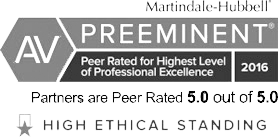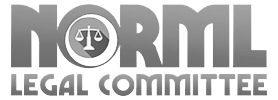
While Utah is a relatively safe place, one thing you should watch out for is fraud. It is one of the most common crimes in Utah. By definition, it is when someone uses deceit to take something from another person, such as money or property.
In Utah, not only is it against the law to use an illegally obtained credit or debit card, it’s illegal to even possess one. Those are two separate crimes. This means that depending on the circumstance, you can be charged with two felonies — with varying prison time for each — just for using a stolen credit card once.
You’d think with such harsh punishments, people wouldn’t commit this crime anymore. However, a lot of people get away with it. There aren’t concrete numbers about it, but it’s estimated that the instances of credit card fraud that actually result in someone getting caught is only about 1%.
Criminals don’t have to have a physical copy of your card to commit this crime. They just have to have basic information like the number, expiration date, and security code. At the ATM, there are a variety of ways they can obtain it. These typically involve some kind of technology that steals your information.
To protect yourself, look out for aspects of the ATM that are abnormal. If there is an unusual device that you don’t recognize or if there are loose parts, that may be an indication that the machine is compromised. You should also make sure to cover the keypad as you enter your PIN.
If your card appears to be “eaten” by the machine, and a “helpful” person in line suggests you re-enter the PIN, don’t follow that advice. That person is likely a criminal. The machine will not give you the credit card back. Instead, the person will take it from the machine after you leave.
According to Forbes, Utah isn’t even in the top ten states when it comes to fraud. However, it does lead the nation when it comes to investment-related scams.
“[A]ny sales device or plan under which a person gives consideration to another person in exchange for compensation or the right to receive compensation that is derived primarily from the introduction of other persons into the sales device or plan rather than from the sale of goods, services, or other property.”
Conducting this kind of scheme is a third-degree felony or up to five years in prison.
Here’s an example of a ponzi scheme. Let’s say you have a friend who comes up to you and says, “Hey, I’ve got a great investment opportunity. It’s a specialized pot that heats up by itself. We’re going to start selling it in Japan and see if it takes off.”
You give that friend money to invest, and for a while it looks like the specialized pot is making some money. You might see some of it come into your bank account. However, it later comes out that the product was completely made up.
There was never a self-cooking pot being sold in Japan. The money you were getting came from that friend going up to other investors and asking them for funds. The friend then used those funds to pay you and other previous investors instead of actually investing them into anything.
The Utah Department of Commerce has some excellent advice on how to protect yourself from these kinds of scams. Always research the background of someone asking for money, and make sure they have a securities license. You should also ask if you can see the “opportunity” in writing, and not let anyone pressure you into making a decision before doing your own research.
This kind of fraud is a separate listing in the most common crimes in Utah. One of the more common types is online impersonation. This is when someone pretends to be another person on the Internet — especially social networking websites — with the intent of defrauding or causing harm.
Online impersonation is a class A misdemeanor, meaning up to 364 days in jail.
If you’ve ever had a friend request on Facebook from someone you are already friends with, they may be someone trying to scam you. Before accepting this kind of request, go to the original profile of your friend and ask whether or not they made a new account. If they did not, you can report the new account to Facebook.
If you’re accused of fraud, you are presumed innocent until you are proven guilty. If you did not commit the crime, you’ll need a good lawyer to help you show the courts that you did not commit the crime. Doing this by yourself can complicate things. You can end up saying something that incriminates you without even realizing it.
If you are guilty, and you want to plead that way, a good attorney can help you achieve the best outcome possible.
If you’re in the Salt Lake City area, you might want to consider Brown, Bradshaw & Moffat. Our attorneys have over 20 years of experience behind them, and they would love to help in any way they can. For a free consultation, please call (801) 532-5297.
https://www.brownbradshaw.com/posts/10-most-common-crimes-utahhttps://dictionary.law.com/default.aspx?selected=785https://le.utah.gov/xcode/Title76/Chapter6/76-6-S506.2.html?v=C76-6-S506.2_2023050320230503https://le.utah.gov/xcode/Title76/Chapter6/76-6-S506.3.htmlhttps://www.utcourts.gov/en/self-help/case-categories/criminal-justice/penalties.htmlhttps://www.datavisor.com/wiki/credit-card-fraud/https://www.investopedia.com/articles/pf/08/avoid-atm-scams-atm-fraud.asphttps://www.forbes.com/advisor/credit-cards/most-scammed-states-in-america/https://le.utah.gov/xcode/Title76/Chapter6A/76-6a-S101.html?v=C76-6a-S101_2023050320230503https://le.utah.gov/xcode/Title76/Chapter6A/76-6a-S102.html?v=C76-6a-S102_2023050320230503https://scams.utah.gov/https://www.brownbradshaw.com/posts/how-impersonation-can-get-you-in-trouble-in-utahhttps://le.utah.gov/xcode/Title76/Chapter9/76-9-S203.html
Use the form above to request your free, confidential case evaluation. Our office will contact you as soon as possible to arrange for you to discuss the facts of your case with an experienced criminal defense attorney in Salt Lake City, Utah.
Note: By submitting the above form, you are requesting a free and confidential consultation with one of our attorneys to discuss the specific facts of your case. We will evaluate your unique situation and provide you with valuable information about how an attorney may be able to help you. Please do not provide any confidential or time-sensitive information using this online contact form. If your situation is urgent, please call us at (801) 532-5297. We look forward to hearing from you.
The use of this form for communication with our personnel does not establish an attorney-client relationship.



